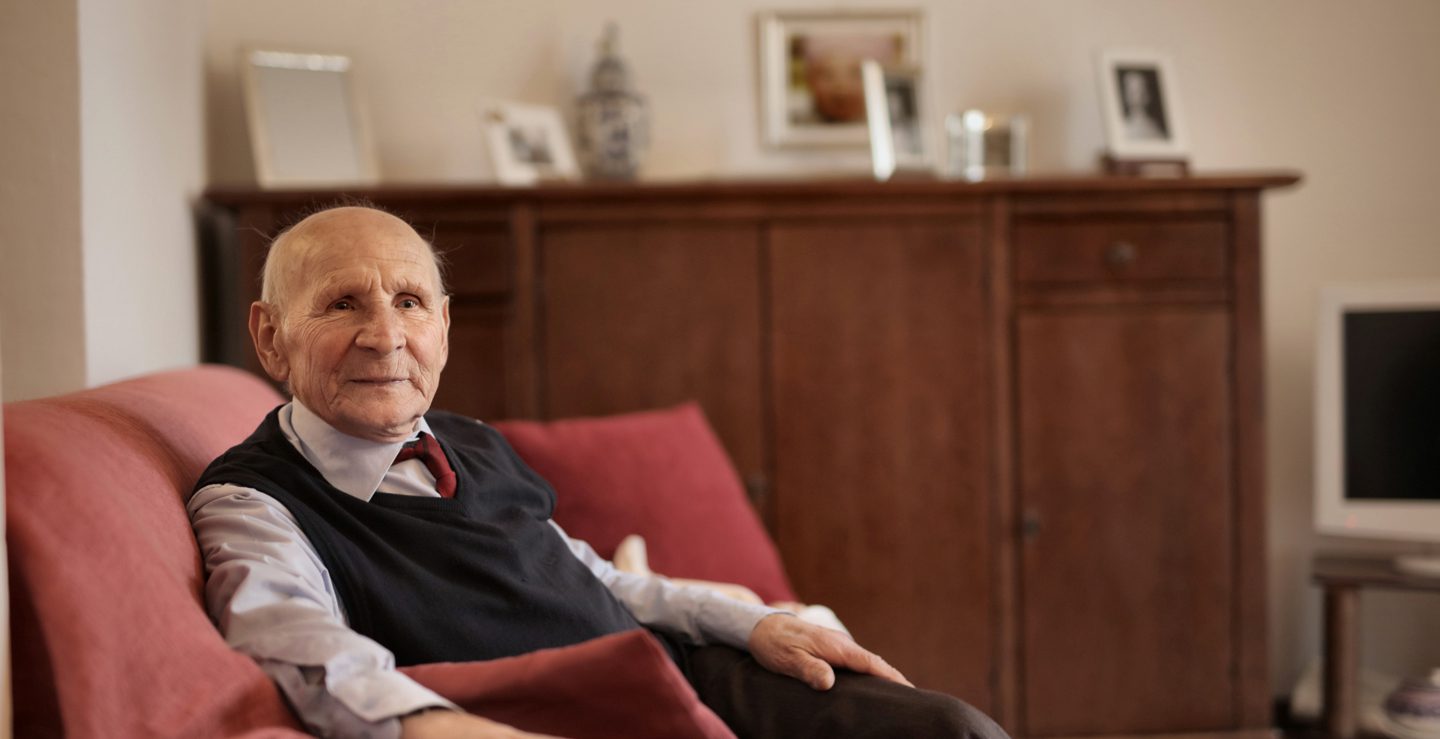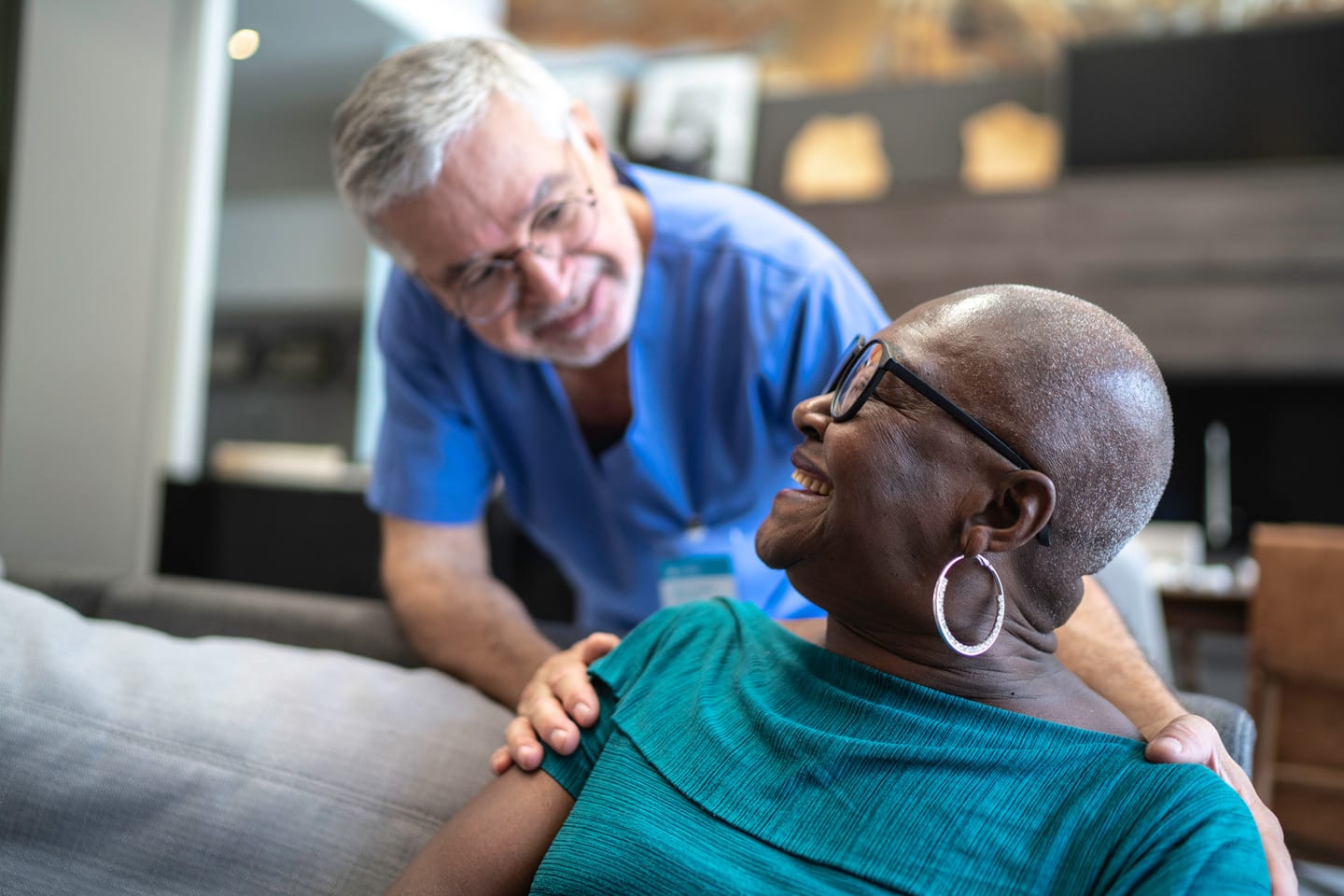A diagnosis is the first step in moving forward with dementia
You may feel shock, relief, upset or maybe a mixture of those feelings when you are diagnosed with dementia. Whatever your feelings about your dementia diagnosis, your diagnosis is the first step in moving forward with dementia.
Now you have a name for the disease, and an explanation of your symptoms this can help. Knowing more about dementia means you are able to know more about what to expect and what you can do.
Many people with dementia live meaningful, full lives after their diagnosis.
We want to share with you what people with dementia have shared with us – their good and bad experiences, challenges they’ve faced and solutions they’ve used. Along with some information and practical suggestions we will help you find the information you need to choose your own path forward with dementia.
People with dementia told us the following actions helped them in the first year after diagnosis. You don’t have to take on board all these suggestions and there is no correct order.
- Understand your diagnosis: helps you to make sense of what you are going through.
- Manage your feelings: feelings about having a diagnosis of dementia sometimes get in the way of adapting to dementia. Understanding these feelings can help.
- Manage your symptoms: there are strategies and treatments which can help with the symptoms which bother you.
- Live your life: life doesn’t stop because you have dementia. An active and social lifestyle may improve brain health.
- Plan so you stay in control: plan for now and the future and know what supports and services can help.


Start your own dementia toolkit
Understanding your type of dementia will help you adjust and plan
Dementia describes a group of diseases which affect the brain. It may be helpful to think about dementia as a condition which changes how your brain works, leading to changes in how you think, feel and what you do. To get a diagnosis of dementia, your doctor will have found that you’re having difficulty with things such as changes in your memory, thinking, the way you act or the way you feel which make it harder for you to go about your daily life. Find information below from the Alzheimer’s Society about specific types of dementia.
Click on the common dementia types to find out more about them:
- Alzheimer’s disease
- Vascular dementia
- Fronto-temporal dementia
- Dementia with Lewy Bodies
- Mixed dementia
You can also find out about rarer types of dementia
Each type of dementia affects the brain differently. No one is affected in the same way. However, there are some similar factors and you can check out a visual map of the brain and take a tour and find out how your brain might be affected
Many treatments to help you with symptoms you may have tend to work for all dementia types. However, eligibility for dementia medication does depend on your type of dementia. Find out more about treatments in Dealing with memory and thinking difficulties.
Sometimes doctors can’t tell the difference between types of dementia, so you can have a dementia of more than one type or of a mixed type of dementia.
Ask your doctor specific information about your dementia
Some people told us that when they were told that they had dementia, they found it hard to take in or remember any other information at that appointment. Some people also told us that they weren’t given enough information. They recommend making a follow-up appointment to find out more about your particular diagnosis and to think about the questions you may want to ask. If you can’t get a follow-up appointment with the person who gave you a diagnosis, your general practitioner (doctor) may also be able to give you information about your dementia diagnosis.
We’ve put together a list of questions that people with dementia often ask their doctors. The link is at the bottom of this page. You might find this helpful as a starting point for the questions you’d like to ask your doctor – write them down so you don’t forget any during your appointment.
Get trustworthy, up-to-date information about dementia
Some people like to have as much information as possible, and others prefer to focus on what they need right now. Information about dementia can help you and those who support you to find out more about life with dementia. Choose what information you need, when and in what form.
I want to read online materials about dementia
The Alzheimer’s Society has many useful factsheets about dementia.
iGeriCare | Lessons provides a range of short and longer video lessons on different topics about dementia, developed by McMaster University in Ontario, Canada
I want to read books about dementia
The Alzheimer’s Society suggests a range of books about dementia. Some of these include personal stories by people living with dementia
I want to watch an online video or listen to a podcast about dementia
Dementia Alliance International has many videos about dementia on their YouTube Channel .
You might like to start with I’ve been Diagnosed with Dementia – What’s Next
The Dementia Together podcast features people with dementia and carers talking about their experiences adapting to and living well with dementia
I want to talk to a dementia professional by phone
Dementia Connect Support Line is available seven days a week. You or those who support you can talk to a dementia advisor for personalised information, support and advice by calling freephone 0333 150 3456.
You can also talk to an Admiral Nurse for information, advice and support. You can call their free helpline seven days a week.
The free helpline number is 0800 888 6678
I want to go to a group
Support or education groups are another way to learn about dementia. These can be especially good at providing you with the opportunity to learn more about dementia, meet other people who are going through the same situation, and ask questions over time. Some people find education groups helpful because they don’t know what they need to know.
Visit or call the Alzheimer’s Society Dementia Connect Support Line
for information about local support groups and educational events.
I want to learn from other people with dementia
Dementia Alliance International (DAI) is a collaboration of like-minded people living with dementia who provide a unified voice of strength, advocacy, and support in the fight for individual autonomy for people with dementia. DAI was established to provide education and awareness about dementia, to eradicate stigma and discrimination and to improve the quality of the lives of people with dementia. DAI is for people with dementia by people with dementia.
DAI runs online peer to peer support groups, as well as hosting virtual cafes and an educational webinars series for members around the world. Membership and services are free for people with dementia.
I want to do an online course about dementia for the public
Some people want more information in more detail about dementia. A bonus benefit is that learning improves brain health. The University of Tasmania offers free, online 7-week courses about dementia for people who live anywhere in the world. People with dementia have found these courses useful and enjoyed completing them. The courses are known as Massive Online Open Courses or ‘MOOCS’. MOOCS offer lots of good quality information and you can interact online with your lecturers and others doing the course.
Futurelearn also host a range of free MOOCs on dementia which you may find interesting and helpful.
Ask your doctor and find more support
Ask your doctor more about your dementia symptoms and treatment and support options.
Call Dementia Connect 0333 150 3456 for free for personalised information, support and advice.
You can also take a look at our questions about a dementia diagnosis fact sheet






